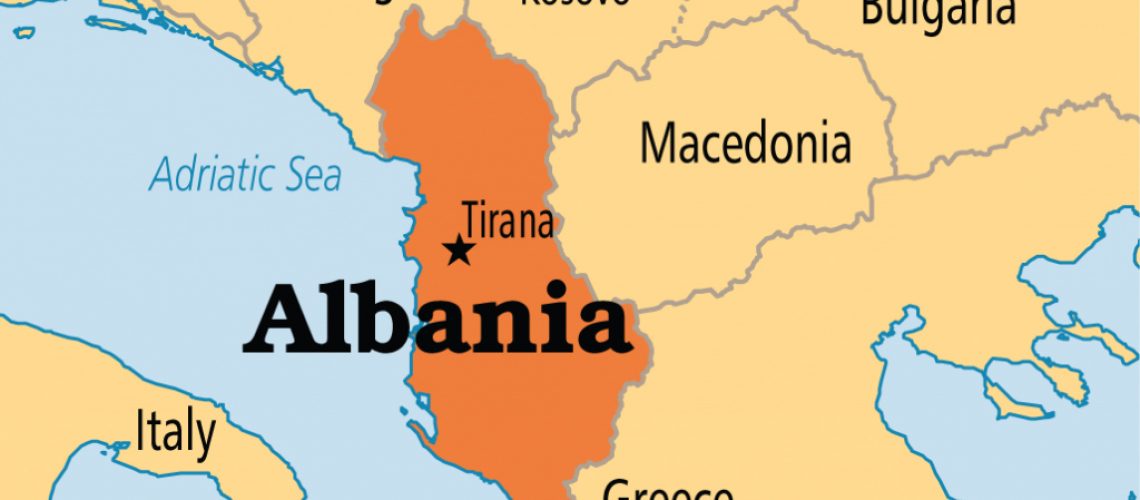Which European Countries Allow Surrogacy- Your complete guide for surrogacy in Europe

The path to becoming parents through surrogacy is complex. This is because laws about surrogacy vary a lot from country to country. Some places make it easy, while others are very strict, especially for gay couples. Let’s dive into the topic of “surrogacy in Europe” and see if this is the right surrogacy journey option for you.
It’s crucial to know where surrogacy is allowed and what rules apply. For example, the cost for gay couples in Europe can be around €95,000. This includes different payments at different times. But figuring out the legal side of surrogacy in Europe can be tough.
This guide aims to shed light on the complex world of surrogacy laws. We’ll look at countries where it’s allowed, the difference between commercial and altruistic surrogacy, and what parents-to-be need to know. It’s a journey that’s both rewarding and challenging.
Key Takeaways
- Surrogacy laws in Europe vary greatly, impacting intended parents’ decisions.
- Countries like Greece, Cyprus, and the UK allow surrogacy for gay couples.
- Surrogacy costs can range, averaging €95,000 for gay couples in Europe.
- The success rate for surrogacy among gay couples is between 85% and 95%.
- Understanding when surrogacy is legal can significantly shape family planning.
Get in touch for a Free Surrogacy Consultancy:
+91-8800481100 ( WhatsApp, Line, Viber)
Understanding Surrogacy in Europe
Surrogacy is when one woman carries a child for another couple. In Europe, the surrogacy regulations in Europe are different, causing confusion. It’s key to know these rules if you’re thinking about surrogacy.
There are two main types of surrogacy: traditional and gestational.
Traditional surrogacy uses the surrogate’s own eggs, making her the child’s biological mother.
Gestational surrogacy, on the other hand, uses eggs from the intended mother or a donor. This means the surrogate isn’t genetically related to the child. Each type has its own legal issues, affecting everyone involved.
Legal rules for surrogacy vary across Europe. Some countries allow it with strict rules, while others ban it. For example, Italy, Spain, France, and Germany don’t allow surrogacy. Countries like Ireland, the Netherlands, Belgium, and the Czech Republic also have strict rules. This shows how important it is to research the surrogacy in Europe’s legal rules before making a decision.
Surrogacy is popular in Europe, especially among heterosexual couples. This shows how countries like Ukraine and Georgia are relied upon for gestational surrogacy in Europe. Commercial surrogacy is allowed in a few countries, creating a contrast with those that don’t allow it.
Read more:
How much does surrogacy cost in Ukraine?
How much does surrogacy cost in Georgia?
Cheapest countries for surrogacy?
Surrogacy Laws in Europe
The legality of surrogacy in Europe is complex and varies by country. Some nations allow surrogacy with clear rules, while others ban it strictly. This creates uncertainty for those involved.
European countries have different rules for surrogacy. Knowing these rules is key for those planning to use surrogacy. For example, Georgia has a welcoming policy, allowing both types of surrogacy and recognizing parents from the start.
On the other hand, Germany and France have strict or no rules on surrogacy. This means no legal protection for those who enter into surrogacy agreements abroad.
Whether surrogacy is seen as altruistic or commercial also affects the laws. Countries like Ukraine and Georgia allow commercial surrogacy, while Germany bans it. Cultural views on surrogacy also influence these laws, making legal advice crucial for international surrogacy.

Here’s a table comparing how different European countries view surrogacy:
| Country | Legal Status | Type of Surrogacy Allowed | Comments |
| Georgia | Permissive | Commercial | Recognizes intended parents as legal from conception |
| Ukraine | Permissive | Commercial | Only married heterosexual couples with genetic link may apply |
| Germany | Prohibitive | None | Both commercial and altruistic surrogacy banned; criminal penalties apply |
| France | Prohibitive | None | No recognition of surrogacy agreements |
In Which European Countries is Surrogacy Legal?
Exploring where surrogacy is legal in Europe shows a mix of laws across the continent. Laws on surrogacy vary, affecting both intended parents and surrogates. Some countries allow surrogacy, while others ban it. This section will look at the laws, focusing on commercial and altruistic surrogacy.
Overview of European Surrogacy Laws
Only a few European countries, like Greece, Georgia, and Ukraine, permit surrogacy. They allow both commercial and altruistic surrogacy, making them good choices for parents. On the other hand, countries like France and Germany ban all surrogacy, showing stricter rules.
| Country | Surrogacy Type | Remarks |
| Greece | Altruistic | Specific qualifications for intended parents are needed. |
| Georgia | Commercial | Few regulations make it an accessible option. |
| Ukraine | Commercial | Widely recognized for international surrogacy. |
| France | None | All forms of surrogacy are prohibited. |
| Germany | None | Surrogacy is illegal under civil law. |
| United Kingdom | Altruistic | Commercial surrogacy illegal, and agreements are non-binding. |
Commercial vs. Altruistic Surrogacy
Europe mainly splits between commercial and altruistic surrogacy. Commercial surrogacy pays more than just medical costs, found in places like Georgia and Ukraine. Altruistic surrogacy only covers necessary expenses, favored by the UK and many others. This choice reflects a focus on ethics and morality.

Popular European Destinations for Surrogacy
Many European countries are great for surrogacy because of their laws and ethics. Ukraine, Georgia, and Albania are top choices. Each offers unique benefits for those looking into surrogacy.
Surrogacy in Ukraine: Best countries for surrogacy in Europe
Ukraine is a top spot for surrogacy, drawing many couples. Since 2009, it has made it easy and affordable for foreign couples to have a baby through surrogacy. This makes Ukraine a welcoming place for those wanting to start a family.
Prices in Ukraine are much lower than in the US. This is why many choose it for their surrogacy journey.
Surrogacy in Georgia: Best countries for surrogacy in Europe
Georgia has been a key place for surrogacy since 1997. It allows both commercial and altruistic agreements. Unmarried couples can also find options here, without needing to be married.
Georgia is more affordable than Ukraine, but some clinics may offer lower-quality services. Still, it’s a popular choice for those wanting to have a child.
Surrogacy in Albania: Unregulated Options for Gay Surrogacy in Europe
Albania is unique for surrogacy in Europe, with its unregulated environment. It’s especially good for gay couples wanting to start a family. While there are no strict rules, this freedom allows for more options.

Surrogacy in Cyprus: Unregulated Options for Gay Surrogacy in Europe
Surrogacy in Cyprus is a common choice among intended parents, with most programs involving IVF and embryo transfer to the surrogate mother taking place within Cyprus. However, the childbirth typically occurs in another country—one that aligns with the legal and logistical requirements based on the intended parents’ nationality. This creates a hybrid surrogacy model, where medical procedures are performed in Cyprus, while the delivery happens in a more favorable jurisdiction for parental rights and citizenship processes.
European Countries with Strict Surrogacy Regulations
Surrogacy laws in Europe vary a lot. Some countries make surrogacy illegal, while others have unclear rules. It’s important to know these differences if you’re thinking about surrogacy.
Countries Where Surrogacy is Banned
Many European countries have banned surrogacy. Here’s a list:
- Austria
- Germany
- France
- Italy
- Norway
- Spain
- Sweden
- Estonia
In these places, surrogacy is not allowed and can lead to serious penalties. For example, in Italy, you could face jail time and big fines. This shows how strict the laws are against surrogacy in Europe.
Legal Ambiguity in Certain Nations
Some European countries have unclear laws about surrogacy. Countries like Greece, Albania, and Finland don’t have clear rules. This makes it hard for people who want to use surrogacy.
In places like the Netherlands, only certain types of surrogacy are allowed. This means people often struggle to understand the laws.
Here’s a quick look at how different countries handle surrogacy:
| Country | Status of Surrogacy | Comments |
| Austria | Illegal | Punishments include fines and possible imprisonment. |
| Germany | Illegal | Embryo Protection Law prohibits all forms of surrogacy. |
| Italy | Illegal | Punishment can reach 3 years imprisonment and up to €1 million fines. |
| Spain | Illegal | Surrogacy contracts are treated as void and unregulated. |
| Netherlands | Restricted | Only altruistic surrogacy under strict conditions is permitted. |
| Sweden | Illegal | All forms of surrogacy are expressly prohibited. |
| Greece | Ambiguous | Commercial surrogacy is illegal; no clear regulations exist. |
| Finland | Ambiguous | Unregulated status poses risks for intended parents. |
It’s key to know the surrogacy laws in Europe if you’re thinking about it. Countries where surrogacy is legal offer clearer paths. But, it’s important to understand the legal challenges and penalties in places where it’s banned. It is advised to speak with a experienced surrogacy consultant to discuss your specific case.
The Implications of Surrogacy Bans in Europe
Many European countries ban surrogacy, making it hard for parents-to-be and surrogates. Couples wanting a family face legal hurdles, causing stress and financial worries. Since surrogacy laws in Europe are strict, many turn to other countries, leading to high costs and challenges.
This journey can be overwhelming and full of unknowns.
Impact on Intended Parents
Parents affected by surrogacy bans deal with several issues:
- They must travel abroad for surrogacy, adding to their expenses.
- They face legal issues over parental rights in their home country and the surrogacy location.
- There’s a risk of surrogates being exploited, especially in places with weak laws.
- They also experience emotional stress from the complex and unpredictable process.
The Italian Senate’s strict surrogacy laws are part of a wider trend in Europe. Before these laws, about 250 Italian couples looked for surrogates abroad each year. With harsh penalties, including fines and jail, parents may feel more desperate for solutions.
Risks for Surrogates
Surrogates also face risks due to surrogacy laws in Europe:
- They are vulnerable to exploitation in places with weak or no laws.
- They have limited legal protection if surrogacy agreements aren’t recognized at home.
- They may face health and safety risks from unregulated surrogacy.
- They also deal with emotional challenges from uncertain parental rights and possible conflicts after birth.
Surrogacy bans affect not just parents but also surrogates. Countries like Italy, Spain, and Germany banning surrogacy add to the challenges. It’s crucial to understand these impacts for anyone thinking about surrogacy in Europe.

The Process and Guidelines for Surrogacy in Permitting Countries
Surrogacy is a complex mix of legal and medical rules, especially in countries where it’s allowed. It’s key for both intended parents and surrogates to know the surrogacy laws in Europe. This part explains the main rules and steps for a successful surrogacy journey.
Requirements for Intended Parents
In places where surrogacy is legal, intended parents must meet certain criteria. Key requirements include:
- Legal agreements that outline the rights and responsibilities of all parties involved.
- Financial assessments to ensure that intended parents can support the surrogate throughout the pregnancy.
- Proof of medical necessity for surrogacy, often requiring documentation from healthcare professionals.
Following the European surrogacy guidelines can make the process smoother, reducing legal issues.
Medical and Psychological Evaluations for Surrogates
Surrogates are crucial in surrogacy arrangements. So, they must go through detailed medical and psychological checks. These checks make sure that:
- Surrogates are physically able to carry a pregnancy.
- They understand the emotional duties of surrogacy.
- All health risks are well-checked and shared.
These evaluations follow international surrogacy policies. They show the need for a supportive and informed process for both sides.
Alternative Surrogacy Countries in Latin America
Prospective parents are looking beyond strict surrogacy laws in other countries. Latin America is becoming a popular choice. It offers countries with easier and more open surrogacy rules. We’ll explore surrogacy in Mexico, Colombia, and Argentina, showing what each offers.
Surrogacy in Mexico
Mexico is a key spot for surrogacy in Latin America. In 2021, Mexico’s Supreme Court made surrogacy a protected medical option for everyone. Now, twenty-seven states allow surrogacy, making it inclusive. The cost is much lower than in the U.S., ranging from $40,000 to $60,000.
Surrogacy in Colombia
Colombia is welcoming for surrogacy, especially for same-sex couples. The law requires at least one parent to be genetically related to the child. The Constitutional Court has set rules for surrogacy, ensuring it’s done ethically. Costs are around $50,000, making it a budget-friendly option.
Surrogacy in Argentina
Argentina’s surrogacy laws can change, but there are still options for international parents. The country allows both altruistic and commercial surrogacy. Costs are about $45,000 to $55,000, making it a viable choice for many.
| Country | Legal Status | Estimated Cost | Key Features |
| Mexico | Protected medical procedure; available for all | $40,000 – $60,000 | Wide availability across states; inclusive of sexual orientation |
| Colombia | Same-sex couples allowed; genetic link required | $50,000 | Guidelines established by Constitutional Court |
| Argentina | Altruistic and commercial surrogacy allowed | $45,000 – $55,000 | Growing market; varied regulations by region |
Conclusion
Exploring surrogacy in Europe is key for those thinking about this way to become parents. Different countries have their own rules, making it complex. Some places, like Ukraine, Georgia, and Armenia, support both surrogates and parents well, while others have strict rules or bans.
Ukraine is a big player in the surrogacy world, with over 25% of the market. As laws change, parents need to get good advice. This ensures their choices are both smart and fair.
There are ongoing talks about surrogacy, like how much money should be paid and the care of surrogate mothers. Knowing which European countries allow surrogacy and follow ethical standards is crucial. With the right research and support, building a family through surrogacy can be rewarding.
📞 Get in Touch for a Free Surrogacy Consultation
📱 +91-8800481100 (WhatsApp | LINE | Viber)
📧 neelam@ivfconceptions.com
🌐 www.ivfconceptions.com
💫 Why Intended Parents Choose IVF Conceptions for a Safe, Smooth & Successful Surrogacy Journey:
- 🌍 Access to multiple surrogacy destinations with 15+ years of international experience
- 🏥 Partnerships with top-tier fertility clinics and agencies, backed by references from past clients
- 👩🦱 Diverse egg donor options: Asian, Caucasian, African, Oriental, and more
- 💸 Transparent and affordable pricing—direct payments with no extra agency fees
- 🔒 No hidden costs—all charges are agreed upon upfront
- 🤝 Dedicated case manager for personalized support
- 📲 Fast, honest, and clear communication throughout
- 📑 Full legal support for visas, documentation, and baby exit processes
- 🧬 Complete access to medical records of donors and surrogate mothers
- 🚚 Assistance with frozen sperm/embryo shipment logistics
- ❤️ A compassionate team with deep experience in managing complex surrogacy programs worldwide

FAQ for Surrogacy in Europe
In which European countries is surrogacy legal?
Surrogacy is legal in some European countries like Greece, Georgia, and Ukraine. They allow both commercial and altruistic arrangements. But, countries like France and Germany ban it.
What types of surrogacy are recognized in Europe?
Europe recognizes two main types of surrogacy. Traditional surrogacy is when the surrogate is the biological mother. Gestational surrogacy is when the surrogate carries an embryo from the intended parents or donors.
What are the implications of surrogacy laws in Europe?
Surrogacy laws in Europe are very different from one country to another. This affects the rights and duties of intended parents and surrogates. It’s especially true for issues like custody and parental rights.
What are the risks associated with surrogacy bans in Europe?
Bans on surrogacy can force intended parents to go abroad. This can be very costly and emotionally challenging. It also puts surrogates at risk of exploitation in places without rules.
What guidelines should intended parents follow when pursuing surrogacy?
Intended parents should follow local laws and guidelines. This includes legal agreements, medical checks, and psychological screenings for surrogates. It’s to protect everyone involved.
How do the surrogacy laws in Europe compare to those in Latin America?
Latin American countries like Mexico and Colombia have less strict surrogacy laws. This makes it easier and cheaper for international intended parents to find surrogacy options.
Can gay couples pursue surrogacy in Europe?
The chance for gay couples to pursue surrogacy varies by country. Some places, like Georgia and Ukraine, allow it. But others ban it, leaving same-sex couples with few options.
What are the best surrogacy clinics in Georgia?
Top surrogacy clinics in Georgia include New Life Georgia and GIVT. They offer full services, including legal help and medical care, for intended parents.
What challenges arise from legal ambiguities in certain European countries regarding surrogacy?
Legal doubts can make things unclear for intended parents. They might worry about their rights as parents and the legality of surrogacy agreements. This can lead to problems over custody and parental status.
Source Links
https://www.euronews.com/2018/09/13/where-in-europe-is-surrogacy-legal – Where in Europe is surrogacy legal?https://en.wikipedia.org/wiki/Surrogacy_laws_by_country – Surrogacy laws by country
https://www.bbc.com/news/articles/c62rmv63069o – Italy surrogacy ban: Couples banned from travelling abroad to seek surrogate
https://www.nytimes.com/2024/01/08/world/europe/pope-francis-surrogacy-ban.html – Francis Urges Ban on Surrogacy, Calling It ‘Despicable’ (Published 2024)

